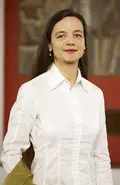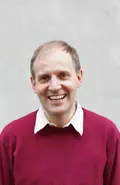Kolleg-Research Group "Religion and Urbanity"
Duration
10/2018
- 09/2022
Funding
Deutsche Forschungsgemeinschaft (DFG) :
5 000 000 Euro
Duration
10/2022
- 09/2026
Funding
Deutsche Forschungsgemeinschaft (DFG) :
5 500 000 Euro
Project management


Team
Cities and religion(s) have had a deep impact on each other. Up to now, research has focused on religion in cities - on the reciprocal changes in religious practices and urban space, at best in "global cities" and in the present. We want to fill the research gap that has arisen in this way by investigating the historical depth of the reciprocal formation within the framework of a Kolleg-Research Group (KRG): This has shaped the epochally and culturally different but interwoven changes and has created those "traditions", cohabitations and conflicts, that architectural-spatial "heritage" which form the cornerstones of today's constellations and their exploration. What role do religious actors, practices and ideas play in the emergence and ongoing development of cities and "urbanity"? What role did urban actors, spaces and practices play in the emergence and ongoing development of religious groups and "religion"? These are the initial questions with which we want to take Europe, the Circum-Mediterranean region and South Asia as examples. Our historical approach goes back to the founding of cities in the 1st century BC. The aim is to gain new insights into the historical diversity of the formation of urban forms of life and the model "city" through the focus on religion, and to better understand and present the formation of religious pluralizations such as "religions" (as spatio-temporal practices such as social formations) through the focus on urbanity.
The work of the KRG can be based on scattered work, especially on sacred centres and the role of religious practices in ancient and medieval cities. In the first phase, it aims to broadly grasp the phenomena of mutual change. This will be done through case studies of individual or groups of cities and through epochal and regional comparison. This will be linked - and this is where the methodological innovation of the KRG lies - by a grid that always links questions of urban and religious history. In a second phase, the question of how urban and religious history(s) are to be conceived as urban and religious societies, taking into account these interactions and the respective importance of the factors urbanity and religion for each other and in their interrelation, will then have to be addressed. Only in the form of a Kolleg-Research Group this combination of historical breadth and a theory formation that consistently reflects non-European findings and concepts can be pursued.
